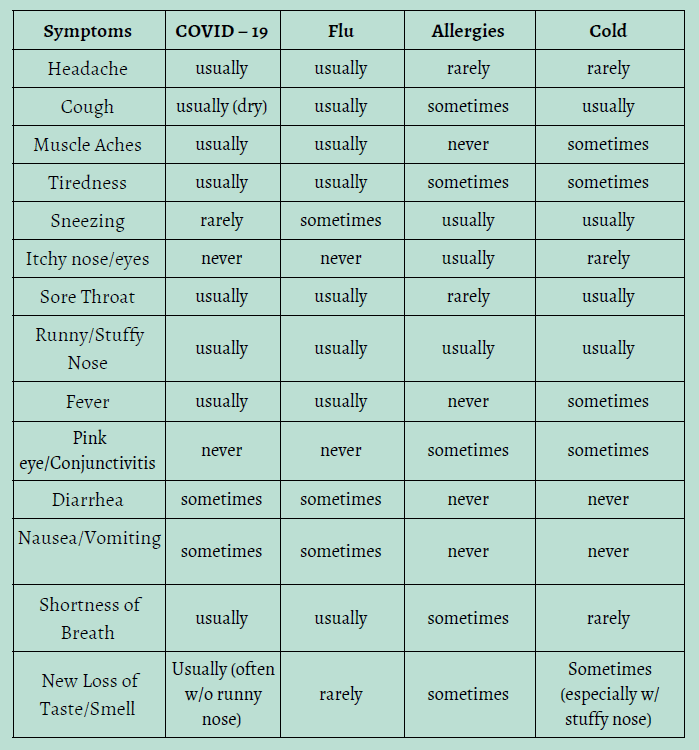Spring allergies are in full bloom!
If you suffer from seasonal allergies, you’ll know its hard to stop and smell the flowers without sneezing or having itchy and watery eyes/nose. Along with allergies, COVID-19 and the flu are also lurking about; the 2023 flu season is estimated to last until the end of May and COVID cases in Virginia spiked in December, but have slowly leveled off since then. However, that doesn’t mean that we should stop being diligent in our attempts to prevent spreading illnesses to others if we do end up falling sick. Understanding what you’re sick with can help lower the transmission rates of these illnesses.
How to differentiate symptoms:
Since allergies, colds, COVID and the flu all have common symptoms, it may be difficult in the beginning to determine which one you may have once you’re sick. The table below gives a general set of symptoms for each illness, but keep in mind that each person’s body will react differently in some scenarios:
COVID –19 symptoms typically manifest 2-14 days after exposure, while the flu typically appears in about 1 to 4 days upon exposure. COVID can cause more serious illnesses in some people than the flu, and post COVID complications are sometimes occur, such as prolonged fatigue and loss of taste and smell. There is currently an anti-viral treatment called Paxlovid, for COVID that is typically recommended for older/immunocompromised patients who are at risk for more serious illness if their COVID diagnosis were allowed to progress. There are more options for the treatment of the flu, but if left untreated, some of the complications in the vulnerable demographics can still become life-threatening.
The best way to lower the risk of getting COVID or the flu, is by staying up to date with your vaccines and boosters. Proper handwashing and sanitizing techniques can also help reduce the risk of transmission – while there is no good way to prevent allergies, there are steps you can take to help lessen some of the effects. If you’re allergic to pollen, reduce your time outdoors when the pollen count is high, take an anti-histamine, wear a face mask and change or shower after being outside for a prolonged period.

